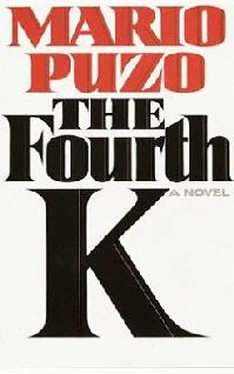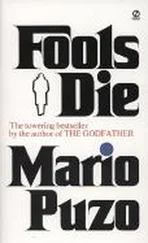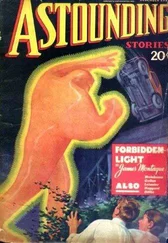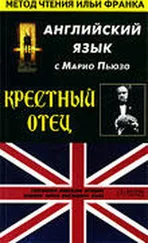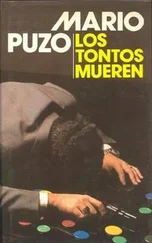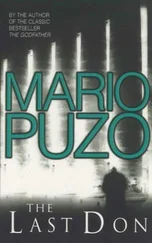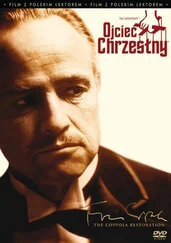The chief of the special platoon was the manservant on duty this night.
Ostensibly he was a black naval steward named Jefferson with the rank of chief petty officer. Actually he had top rank in the Secret Service and was exceptionally well trained in hand-to-hand combat. He was a natural athlete and had been a college all-American in football. And his IQ was 16o. He also had a sense of humor, which made him take a special delight in becoming the perfect servant.
Now Jefferson helped Kennedy take off his jacket and hung it up carefully.
He handed Kennedy a silk dressing gown, as he had learned that the President did not like to be helped putting it on. When Kennedy went to the small bar in the living room of the suite, Jefferson was there before him, mixing a vodka with tonic and ice. Then Jefferson said, "Mr. President, your bath is drawn."
Kennedy looked at him with a little smile on his face. Jefferson was a little too good to be true. Kennedy said, "Please turn off all the phones.
You can wake me personally if I'm needed."
He soaked in the hot bath for nearly a half hour. The tub's jets pounded his back and thighs and soothed the weariness out of his muscles. The bathwater had a pleasant masculine scent and the ledge around the tub was filled with an assortment of soaps, liniments and magazines. There was even a plastic basket that held a pile of memos.
When Kennedy came out of the bath, he put on a white terry-cloth robe that had a monogram in red, white and blue lettering that said THE BOSS. This was a gift from Jefferson himself, who thought it part of the character he was playing to give such a present. Francis Kennedy rubbed his white, almost hairless body with the robe to get himself dry. He had always been dissatisfied with the paleness of his skin and his lack of body hair.
In the bedroom, Jefferson had pulled the curtains closed and switched on the reading light. He had also turned down the bedcovers. There was a small marble-topped table with specially attached wheels near the bed and a comfortable armchair nearby. The table was covered with a beautifully embroidered pale rose cloth, and on it was a dark blue pitcher containing hot chocolate. Chocolate had already been poured into a cup of lighter cerulean blue. There was an intricately painted dish holding six varieties of biscuits. Comfortingly, there was a pure white crock of pale unsalted butter and four crocks of different colors for different jams: green for apple, blue spotted white for raspberry, yellow for marmalade and red for strawberry.
Kennedy said, "That looks great," and Jefferson left the room. For some reason these little attentions comforted Kennedy more than they should, he felt. He sat in the armchair and drank the chocolate, tried to finish a biscuit and could not. He rolled the table away and got into bed. He tried to read from a pile of memos, but he was too tired. He turned off the light and tried to sleep.
But through the muffling of the drapes he could very faintly hear a little of the immense noise that was building up outside the White House as the media of the whole world assembled to keep a twenty-four-hour-a-day watch. There would be dozens of communications vehicles for the TV cameras and crews. And a marine battalion was being set up as extra security.
Francis Kennedy felt that deep sense of foreboding that had come to him only once before in his life. He let himself think directly about his daughter, Theresa. She was sleeping on that plane, surrounded by murderous men. And it was not bad luck. Fate had given him many omens. His two uncles had been killed when he was a boy.
And then just over three years ago his wife, Catherine, had died of cancer.
The first great defeat in Francis Kennedy's life was Catherine Kennedy's discovery of a lump in her breast six months before her husband won the nomination for President. After the diagnosis of cancer, Kennedy offered to withdraw from the political process, but she forbade him, saying she wanted to live in the White House. She would get well, she said, and her husband never doubted her. At first they worried about her losing her breast and Kennedy consulted cancer experts all over the world about a lumpectomy that could remove only the cancerous growth. One of the greatest cancer specialists in the United States looked at Catherine's medical file and encouraged removal of the breast. He said, and Francis Kennedy forever remembered the words, "It is a very aggressive strain of cancer."
She was on chemotherapy when he won the Democratic nomination for the presidency in July, and her doctors sent her home. She was in remission.
She put on weight, her skeleton hid again behind a wall of flesh.
She rested a great deal, she could not leave the house, but she was always on her feet to greet him when he came home. Theresa went back to school, Kennedy went on the campaign trail. But he arranged his schedule so that he could fly home every few days to be with her. Each time he returned she seemed to be stronger, and those days were sweet, they had never loved each other more. He brought her gifts; she knitted him mufflers and gloves.
One time she gave the day off to the nurses and servants so that she and her husband could be alone in the house, to enjoy the simple supper she had prepared. She was getting well. It was the happiest moment in his life, nothing could be measured against it. Kennedy wept tears of pure joy, relieved of anguish, of dread. The next morning they went for a walk in the green hills around their house, her arm around his waist. She had always been vain about her appearance, anxious about how she fitted into her new dresses, her bathing suits, the extra fold of flesh beneath her chin. But now she tried to put on weight. He felt each bone in her body when they walked with their arms entwined. When they returned he cooked her breakfast and she ate heartily, more than he ever remembered her eating.
Her remission gave Kennedy the energy to rise to the peak of his powers as he continued his campaign for the presidency. He swept everything before him; everything was malleable, to be shaped to his lucky destiny.
His body generated enormous energy, his mind worked with a precision that was extraordinary.
And then on one of his trips home he was plunged into hell. Catherine was ill again, she was not there to greet him. And all his gifts and strength were meaningless.
Catherine had been the perfect wife for him. Not that she had been an extraordinary woman, but she had been one of those women who seem to be almost genetically gifted in the art of love. She had what seemed to be a natural sweetness of disposition that was remarkable. He had never heard her say a mean word about anyone; she forgave other people's faults, never felt herself slighted or done an injury. She never harbored resentments.
She was in all ways pleasing. She had a willowy body and her face had a tranquil beauty that inspired affection in nearly everyone. She had a weakness, of course: she loved beautiful clothes and was a little vain. But she could be teased about that. She was witty without being insulting or mordant and she was never depressed. She was well educated and had made her living as a journalist before she married, and she had other skills. She was a superb amateur pianist; she painted as a hobby.
She had brought up her daughter well and they loved each other; she was understanding of her husband and never jealous of his achievements. She was one of those rare accidents, a contented and happy human being.
The day came when the doctor met Francis Kennedy in the corridor of the hospital and quite brutally and frankly told him that his wife must die.
The doctor explained. There were holes in the bones of Catherine Kennedy's body, her skeleton would collapse. There were tumors in her brain, tiny now but inevitably they would expand. And her blood ruthlessly manufactured poisons to put her to death.
Читать дальше
